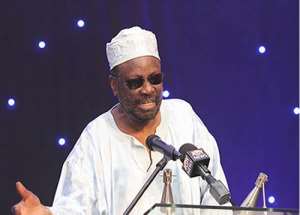Send it by MOMO!” said my uncle.
I had by then not heard of “Momo”! That an illiterate septuagenarian knew of it forced me to find out about it pronto. I realised, then, that I lived in a completely different world from that of the relatives I’d left behind in the “rural areas”.
I soon found out that the popularity of “MOMO” was its accessibility. Anyone can install it on his or mobile phone. You just make sure your credit on the phone can accommodate any sum you want to send someone else on his/her mobile phone, or the phone of someone whom the recipient knows and trusts. And voila! – it’s there within a second!
Systems of “MOMO” across Africa have transformed the lives of millions of people. No longer can the affluent decline to send money to their impoverished rural folk with the excuse that the money would be misappropriated by unscrupulous intermediaries.
That last consideration is extremely important because I have personal experience of it. The fury with which I heard from my mother, at one time, that the money I had sent to her through her own half-brother had NOT reached her, could have climbed up to the top of Mount Everest! My mother sending me a message full of pathos, requesting me to: “Send me money to buy food!” Yes, the guy had used my money to buy uniforms fit for the new high office, to which he had been elected, in some religious cult to which he belonged! And I was sitting comfortably somewhere fully satisfied that my mother was well catered for! The experience taught me never to take the outside trappings of religiosity seriously.
Now, systems like “MOMO” do not please economists of institutions like the IMF. That’s because these institutions want countries under their command to adopt “efficient tax systems”, so that they can obtain revenue to (in the first stance) repay their debts to international organisations and other institutions and/or countries. To them, an “efficient tax system” is one which taxes as high a proportion of a country’s population as possible.
They distrust the so-called “informal” sector of business enormously, because it is difficult to impose direct taxation on the practitioners of business in the sector.
What they forget, though, is that apart from the ideological satisfaction of knowing that the “tax net” has been cast very wide in a country, all members of the community pay indirect taxes when they purchase goods and services. They indirectly pay duty on imports (for example) through their prices (which reflect the duty paid by the importers.) They also pay sales tax (again reflected in the prices of goods and some services) as well as Value Added tax.
It is, of course, politically unwise to oblige a person who can only send a loved relative 100 cedis to pay 1.75 cedis before he can send the money. To the tax officer in the Ministry of Finance, 1.75 may mean nothing. But to someone who counts his/her money before he/she can travel even a mile or two on some urgent business, being deprived of that sum may mean being unable to undertake the journey. And he/she will blame the “government” that deprived him/her of the privilege of undertaking the journey. And the more people stop sending money to their relatives because they don’t want the “government” to “filch” part of it, the less money will leave the urban areas for the rural areas. And that state of affairs always triggers social unrest.
The most relevant example of taxing the poor and reaping unforeseen consequences can be taken from the end of Margaret Thatcher’s rule in the United Kingdom. Thatcher was at first quite popular with the electorate because she pretended to be a careful “housewife” who practised “economy” at home, and did not overspend her income.
But soon, right-wing economic advisers seized on her personal instincts to persuade her to cut taxes for the rich and extend higher taxation to people with lower incomes. The high point of this doctrine was reached when Thatcher’s government introduced “community charge” (known popularly as the “poll tax”) which obliged every adult in a household to pay a tax every year. Students and many members of the under-privileged were hit hardest by the poll tax, which was extremely “efficient” because no taxable person who lived in a residence of any sort, could escape it. (Owners if properties were obliged by law to submit the names of all their residents to their local council each year.)
The imposition of the poll tax in Britain in 1989 brought such riots Britain had not been seen in recent times. Even members of Thatcher’s own backbench MPs, as well as some “Tory grandees” including Michael Hesseltine, regarded it as the handiwork of a mad old woman and began to organise strongly for her removal as Prime Minister. She duly departed from the scene – tearfully – one year after the poll tax was introduced – (1990).
Yes, taxes are unpopular. But some taxes are more unpopular than others. I place Ghana’s proposed E-Levy among the “more unpopular taxes. If I were the President, I would order the Finance Minister to drop it altogether. Look at the strain under which the leadership of the Majority in Parliament has had to operate in since the budget was presented to Parliament. All compromises with the Minority seem to have evaporated. The position of the First Deputy Speaker has been compromised. Is it all worth it? I wonder.















